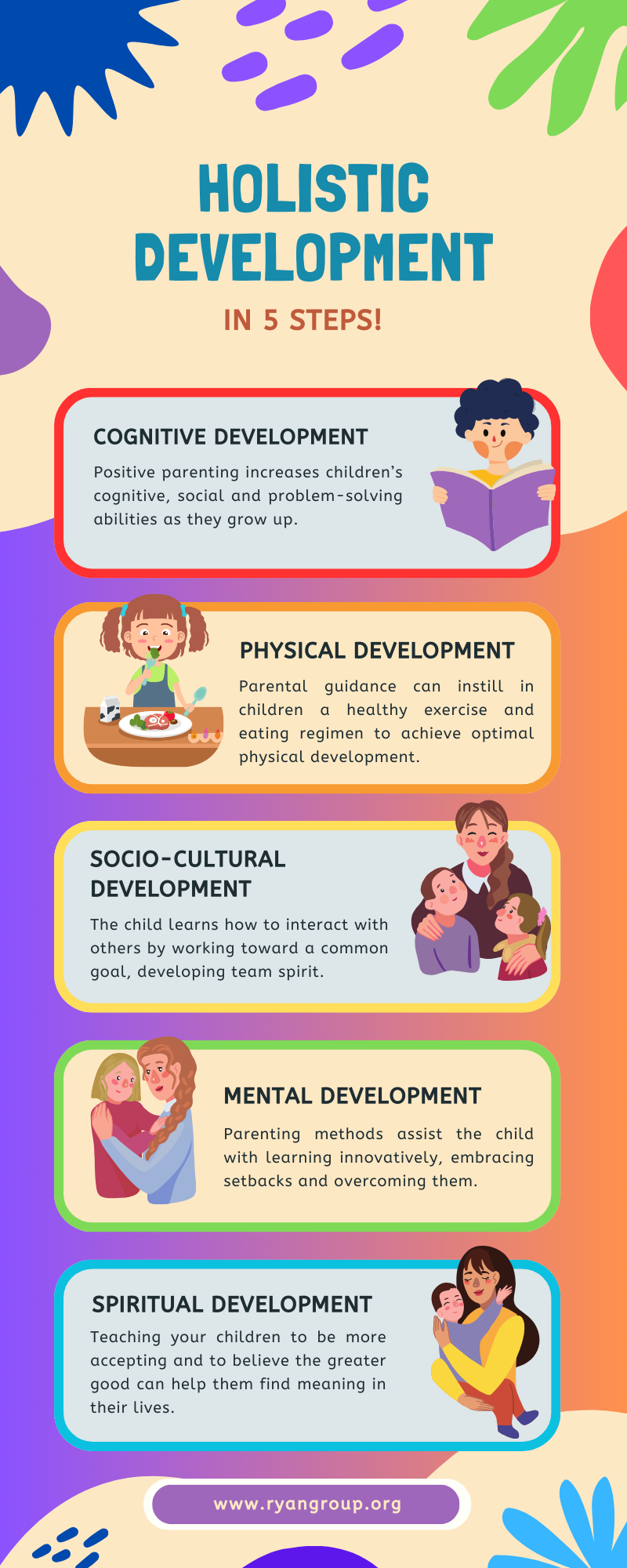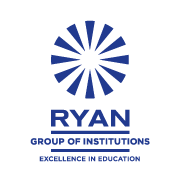 The concept of ” holistic child development ” goes beyond just acquiring knowledge. It encompasses the intertwining of physical socio cultural, mental and spiritual growth to establish a solid foundation for a Childs journey through life. This comprehensive approach aims to shape children into rounded individuals who can think critically and empathize with others.
The concept of ” holistic child development ” goes beyond just acquiring knowledge. It encompasses the intertwining of physical socio cultural, mental and spiritual growth to establish a solid foundation for a Childs journey through life. This comprehensive approach aims to shape children into rounded individuals who can think critically and empathize with others.
Nurturing a Child’s intellect is not an endeavor; it’s like tending to a vibrant garden where different elements work together harmoniously. As parents and educators our role extends beyond teaching; we become creators of environments that recognize and nurture each child’s unique abilities.
In this process cognitive development forms the basis for academic success, critical thinking and problem solving. Physical growth complements this by ensuring children have the strength and health required to explore their surroundings. The socio cultural aspect adds complexity by introducing collaboration skills and exposing children to diverse cultures. Mental development focuses on building resilience and fostering a love for learning while spiritual growth anchors the child’s sense of purpose and connection, within the fabric of life.
Every aspect holds importance with none being more crucial than the others. It is their integration that allows holistic development to truly shine. Together we embark on this journey.
Cognitive Development
Positive parenting plays a role in the realm of cognitive growth. This stage of development lays the foundation for thinking, problem solving and social skills to take root and flourish. Cognitive development goes beyond accumulation of information; it involves teaching children how to think rather than what to think. To effectively nurture this process parents can employ strategies like asking ended questions that encourage children to explore their thoughts and reasoning.
A study conducted by the Early Childhood Longitudinal Program revealed that children whose parents frequently engage them in conversations and reading activities tend to score on standardized tests compared to their peers. This data emphasizes the significance of involvement in nurturing childrens cognitive abilities. Additionally incorporating trivia into learning can be a technique. For example were you aware that children’s brains form, over a million connections every second? Such trivia isn’t just a fact; it highlights the rapid pace at which children’s cognitive capabilities evolve. To promote holistic child development further here are some practical tips you can consider;
- Make it a habit to read daily to enhance vocabulary and comprehension skills.
- Encourage play with puzzles and games that stimulate critical thinking.
- Create an environment where questions are embraced and celebrated fostering a love for curiosity.
These practices play a role in establishing neural pathways that will serve as the foundation for all future learning. Therefore cognitive development is not limited to childhood but should be nurtured consistently throughout a child’s educational journey.
Physical Development – A vital part for Holistic child development
Physical development in children encompasses not building strong bodies but also instilling lifelong healthy habits. The guidance provided by parents during the years sets the stage for lifelong well being. Through a diet and regular physical activity children can reach their full growth potential and develop the energy required to engage in cognitive and socio cultural activities.
Nutrition plays a role in this aspect in holistic child development. It is important for children’s diets to include fruits, vegetables, whole grains and lean proteins to support the rapid growth occurring during these years. According to recommendations from the American Academy of Pediatrics children should engage, in least 60 minutes of moderate to vigorous physical activity each day. Engaging in activities is not only important for the development of muscles and bones but also for maintaining cardiovascular health.
Here are some suggestions to enhance your child’s development;
- Establish a daily routine that includes a range of physical activities from organized sports to unstructured playtime.
- Involve your children in planning. Preparing nutritious meals to promote healthy eating habits.
- Keep an eye on their sleep patterns to ensure they get rest as it is crucial for their physical well being and cognitive functions.
By incorporating these practices into your childs routine you can lay a strong foundation for their physical development, which will positively impact other aspects of their overall growth. These benefits go beyond physical health and also contribute to academic performance emotional well being and social interactions. All these elements are interconnected components of an approach to holistic development.
Socio Cultural Development
The fabric of socio development embraces the individual experiences of children within the broader social context. Their unique contributions form a part of the communitys tapestry. It is through this framework that children learn skills such, as communication, cooperation and empathy.As children interact with their peers and adults they naturally learn the social cues and embrace the richness of cultural diversity, which greatly influences their understanding of the world that surrounds them.
Dr. T. Berry Brazelton, a respected child psychiatrist once emphasized the crucial role of family in shaping a child’s perception of the world. It is within the family unit that children first grasp lessons about social interactions and cultural appreciation. By engaging in activities as family, children develop an understanding of teamwork, respect for others and find joy in shared experiences. To promote socio development as a part of holistic child development, here are some helpful strategies;
- Encourage your child’s participation in group activities that encourage collaboration and teamwork.
- Expose your child to diverse events to broaden their horizons and deepen their global awareness.
- Serve as a role model by demonstrating good social interactions in everyday situations.
These experiences hold value as they equip children with essential skills to navigate the complexities of social interactions throughout their lives. Furthermore these experiences foster a sense of belonging and contribute to cultivating rounded individuals who are culturally aware. Through socio development children not only gain knowledge, about the world but also develop meaningful ways to contribute to it.
Holistic child development – Mind and Spirit
The development of a child’s mind is fundamental to their ability to learn, adapt and thrive emotionally. It involves fostering a mindset that’s open to new experiences, resilient in the face of challenges and capable of innovative thinking. Alongside growth spiritual development plays a vital role in providing a sense of purpose and interconnectedness with the world at large. It revolves around nurturing a compass that guides children through life’s complexities with peace and a sense of belonging.
Regarding development there are innovative approaches like problem based learning that can significantly enhance a child’s analytical and creative abilities. These methods encourage children to approach problems from perspectives cultivating a growth oriented mindset that sees challenges as valuable learning opportunities. Equally important is teaching children to embrace setbacks as parts of the learning process, which helps build emotional resilience.
While less emphasized spiritual development holds equal significance. It doesn’t necessarily relate solely to teachings; rather it involves helping children see beyond themselves by appreciating the interconnectedness of life and understanding their role within a broader context. This can be nurtured through community service activities, mindfulness practices and engaging in discussions, about personal values and ethical considerations. To help your child grow mentally and spiritually here are some suggestions to consider;
- Encourage your child to think and express their thoughts and feelings.
- Expose them to experiences that ignite a sense of awe and wonder, like exploring nature or engaging in community service.
- Support them as they seek personal meaning in their activities and relationships.
By nurturing both their spiritual development we empower our children to become compassionate reflective and grounded individuals. Taking this approach ensures that as they mature they don’t just navigate through life but actively contribute with purpose, empathy and a strong sense of direction.
Holistic child development is a journey that encompasses cognitive, physical, socio cultural, mental and spiritual growth. Embracing this perspective allows us to guide our children not in learning and achieving but also, in understanding and thriving in all areas of their lives.




